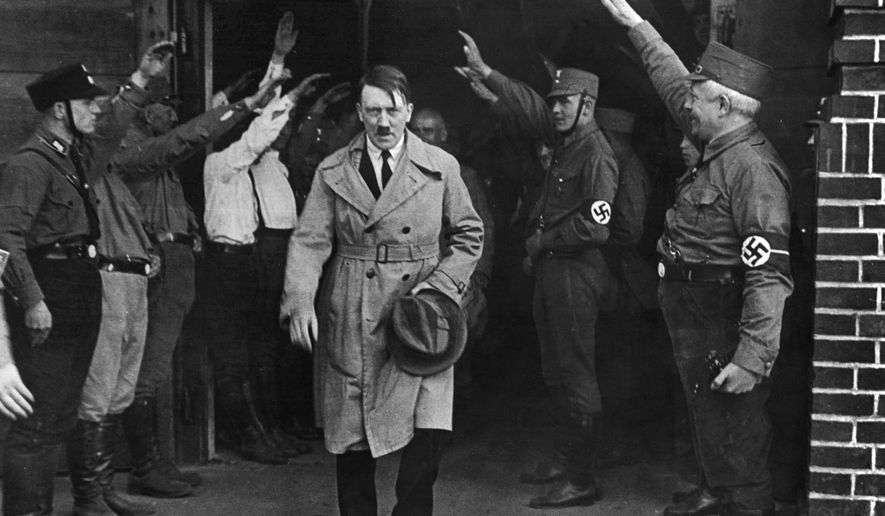Students of political and philosophical concepts are required to learn the definitions of socialism, democracy, republicanism, fascism — among many others. Libraries are filled with volumes written by thinkers and theorists explaining the origins of those ideologies and movements. And now President Biden has coined a new term we might add to that list: semi-fascism.
In remarks at a Democratic National Committee reception on Aug. 25, Mr. Biden said former President Donald Trump and his loyalists within the Republican Party represent a distinct threat to American democracy, a theme he has repeated while campaigning for Democrats ahead of this year’s midterm elections.
“And what we’re seeing now is either the beginning or the death knell of an extreme MAGA philosophy. It’s not just — it’s not just Trump. It’s the entire philosophy that underpins — it’s — I’m going say something — it’s almost like semi-fascism,” the president said. When asked to clarify what he meant, Mr. Biden, rather than define the term, said, “You know what I mean.”
The word “fascism” is everywhere on social media these days. And while some folks may use it as a slur to attack those with whom they disagree, a number of professional scholars have embraced the term to describe what they view as the dangerous rise of right-wing radicalism in American politics.
In this episode of History As It Happens, scholars Jeffrey Bale and Tamir Bar-On argue that it is historically inaccurate and politically dangerous to label Mr. Trump and the Republican Party as fascists. They are the co-authors of “Fighting the Last War: Confusion, Partisanship, and Alarmism in the Literature on the Radical Right.”
SEE ALSO: History As It Happens: Is Putin a fascist?
“We believe the threat posed by fascism and the radical right in Western countries has been egregiously inflated and exaggerated ever since the end of World War II. If you listen to certain pundits, radical left-wing groups, or the self-appointed watchdog groups… they’re always presenting this image that fascism is on the march. They’re still living in the past like it’s the 1930s,” said Mr. Bale, an expert on violent political and religious extremists at Middlebury Institute of International Studies at Monterey.
Whatever one thinks of Mr. Trump and his politics, they do not fit the definition of fascism, said Mr. Bar-On, a political scientist at Tecnológico de Monterrey in Mexico.
“Fascism is spoken about as if we should know what fascism is. There’s a whole body of literature on what constitutes fascism and it goes back to the period when fascists rose to power in the 1920s. At minimum, I would think that if you are a scholar, a journalist or a think tank, you should define what fascism is,” he said.
So what is fascism? What is semi-fascism? Listen to this episode of History As It Happens.




